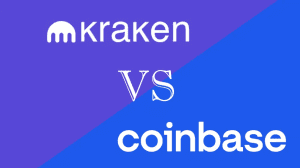What Are Smart Contracts?

Traditional contracts are legally binding written agreements between two or more parties with clear terms and conditions. They ensure that each side keeps its end of the bargain. But what are smart contracts? Well, the concept is the same, but the execution is different. Everything is automated, tamper-proof, and does not require intermediaries or centralized entities.
If you’re curious about smart contracts and how they work, keep reading our guide. We explain everything you need to know and provide real-life examples using plain English – no technical jargon.
Smart Contracts Guide in Short
Take a look at the main facts:
- Computer scientist Nicholas Szabo first proposed smart contracts in 1994.
- They are self-executing programs that run when the terms and conditions are met.
- The contract statements are written into code on a blockchain.
- Neither party can alter or tamper with transactions once they’re completed.
- There’s no need for intermediaries or central authorities.
Smart Contract – Definition and How They Work
Cryptocurrencies like Bitcoin and Ethereum introduced smart contracts to the world. But the idea dates back to 1994 when American computer scientist and cryptographer Nicholas Szabo discussed it in his paper.
Unlike traditional contracts, smart contracts do not contain legal language or terms and conditions. Instead, they use “If This Then That” (IFTTT) logic that is written into code on a blockchain. In other words, when the if/then statements are met, and each side fulfills its end of the deal, the smart contracts automatically run without interaction from either party or entity.
Example: If X party delivers the work on time per the terms and conditions, they will automatically receive payment from Y party.
How a Smart Contract Works

Furthermore, transactions are permanent, irreversible, and unchangeable, even if you’re the author. This makes these types of contracts secure and trustworthy. Also, there aren’t any intermediaries or centralized authorities (like banks, financial institutions, etc.) to handle any action, thus eliminating possible tampering and high commission fees.
Although smart contracts are primarily used for fast, private, and safe cryptocurrency transactions, they have so much more potential. Other industries can integrate them to facilitate and simplify business.
Applying Smart Contracts
The introduction to smart contracts started with bitcoin, using the technology for trading. But it was Vitalik Buterin, the creator of Ethereum, who saw the limitless potential of the smart contract and blockchain technology.
- Healthcare: The smart contract allows medical professionals to store and share data securely and directly. It also helps with the authentication of information.
- Supply chain: Self-running contracts remove the need for intermediaries and supply management. If each side honors its agreement, funds will release automatically.
- Retail: Stores use smart contracts to settle contractor payments faster and track inventory items and other goods across the supply chain.
- Voting: These autonomous agreements ensure no foul play, fraud, or tampering in the voting process. The transactions are irreversible without central authorities in charge.
- Banking and finance: Centralized entities like banks need up to 3 business days to handle your transaction and charge high commission fees. Smart contracts allow immediate, automated operations.
Smart Contracts – Pros and Cons
Despite their many advantages, some drawbacks need ironing out, especially when it comes to programmers writing the smart contract code, which must be flawless.
PROS
- Fast, efficient transactions
- Security and privacy
- Full transparency
- No intermediaries
- Lower transaction fees
- No data tampering
- Unchangeable logs
CONS
- Irreversible in case of a mistake
- No margin for human error
- May contain loopholes
Frequently Asked Questions
Find out more about smart contracts.
What are smart contracts in simple terms?
Smart contracts are programs written in code and saved on a blockchain. They run automatically once the if/then terms are fulfilled.
What is an example of a smart contract?
A smart contract can take place between freelance writers and online news websites. Terms of the agreement include payment per word and deadline. If the writer delivers the assignment on time, he will automatically and immediately receive payment from the employer without intermediaries like banks.
Which blockchain has smart contracts?
The Ethereum blockchain has smart contract capabilities, with bitcoin also receiving the same abilities after the Taproot upgrade.
Can anyone create a smart contract?
Anyone can create a smart contract. They must learn the necessary coding language and have a specific amount of crypto to deploy it.
Do you need smart contracts for NFTs?
Smart contracts assign ownership of NFTs, which makes them an essential tool for selling NFTs.
Signing off the Smart Contract Guide
Smart contracts became a reality with the creation of Bitcoin. But the credit for their high popularity and potential goes to Ethereum. These self-running programs eliminate the need for third parties and centralized entities while ensuring that conditions are unchangeable and tamper-proof.
And although the last feature has its perks and inconveniences, one thing is sure: A smart contract allows for fast, cheap, secure, private, and trustworthy transactions.
Crypto trading (trading in general, actually) is always a risky business because the industry is volatile. Therefore, make smart choices and don’t invest more than you can afford to lose.






1 thought on “What Are Smart Contracts?”